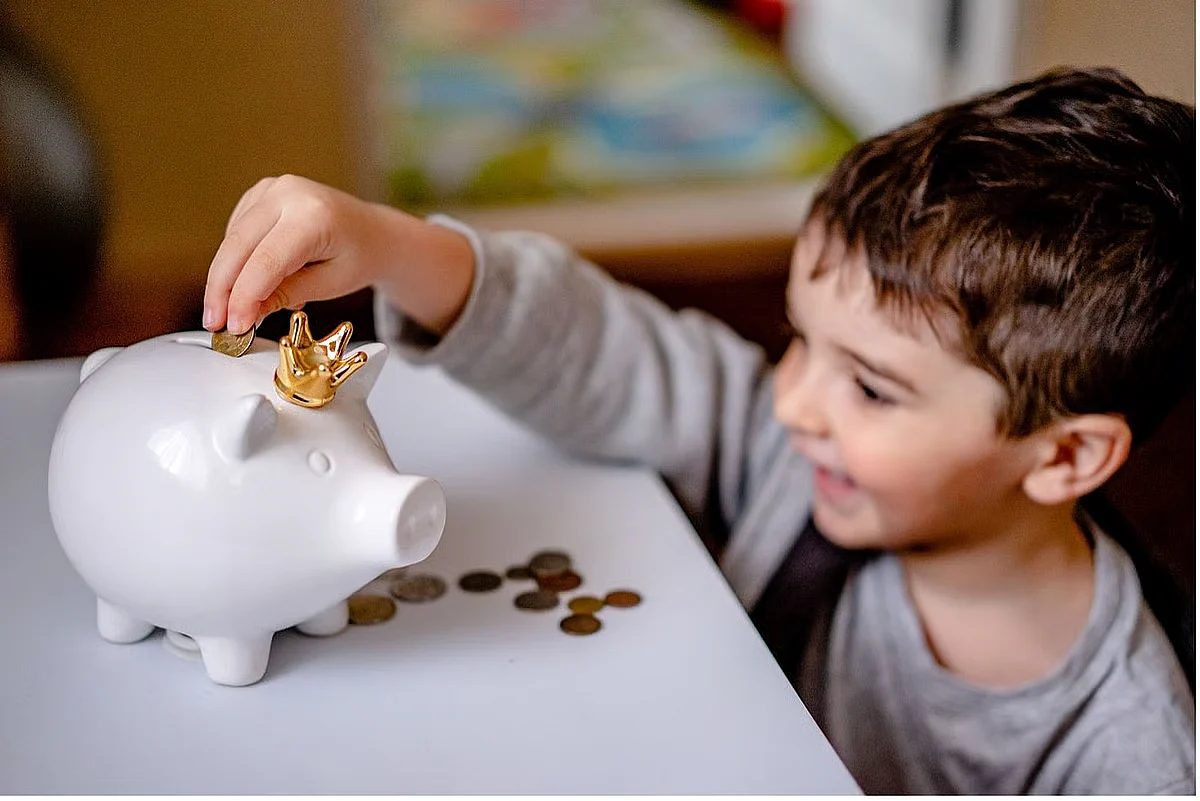
UAE Summer: Some Parents Use Holiday To Teach Kids Budgeting, Financial Literacy
As travel, dining out, and summer camps fill up family calendars across the UAE, many parents are turning these holidays into something more meaningful - teaching their kids about money .
Globally, concerns are rising about young adults' financial dependence. A recent 2025 report by Savings revealed that 50 per cent of parents in the US are still covering their adult children's expenses, averaging over Dh5,400 ($1,474) per month.
Recommended For YouIn the UAE, many parents are taking a proactive approach to financial education - turning everyday outings, like grocery runs or family day trips, into real-life money lessons to foster independence early on.
Stay up to date with the latest news. Follow KT on WhatsApp Channels.
Smart money habitsWith children at home and summer spending on the rise, the break offers a valuable opportunity to teach budgeting, saving , and mindful spending. From small allowances to setting savings goals , experts say the most effective lessons often come from everyday experiences.
Educators said that summer presents a golden window to instil smart money habits in children.
“Summer offers students the chance to rest, reset, and reconnect with themselves, their families, and the world beyond the classroom,” said Amanda Murphy, head of Secondary at GEMS International School – Al Khail.
While financial literacy is embedded in the school's IB curriculum, especially in the Middle Years Programme and Business Management classes, Murphy believes the most powerful lessons come outside of textbooks.
“Structured financial literacy programmes during the holidays may benefit some, but they should be balanced with time for real-life experiences," she added.
“Learning is never confined to school walls nor should summer feel like an extension of the timetable. At its best, it's a time for unstructured learning, joy, and making memories - because those are investments, too," she further noted.
Everyday moments, lasting lessonsGirish Hemnani, a Dubai-based life coach and energy healer, echoed this sentiment.“Teaching financial literacy during the holidays is a wonderful opportunity for experiential learning,” he said.“Summer outings , camps, and even everyday shopping trips can become powerful lessons in mindful spending, budgeting, and making purposeful choices."
"These real-life situations allow children to see money not as a source of stress or entitlement, but as a tool to be used with awareness and intention," he added.
Hemnani also urged parents to model healthy financial behaviour.“It's important for parents to examine their own relationship with money. Children model what they observe more than what they're told. Being honest with your own financial mindset and allowing room for conversation rather than control creates a healthy emotional foundation for your child.”
Delayed gratification pays offBen Lebig, a registered financial planner, has been giving his daughter money lessons from a young age. Now a teenager, she's applying those skills in real life.
For the Filipino expat, conversations about money are a regular part of family life.“Since my daughter was still very young, we have already started teaching her about handling money,” he said.
“We've always encouraged her to manage her own money from allowances, gifts, or selling used books,” he added.“Fifty per cent of anything she receives goes straight into savings. It's a non-negotiable rule.”
Lebig said the payoff is clear. Now that his 15-year-old daughter's outings with friends have increased during the break, she's putting those lessons into practice.“This is where our lesson about delayed gratification becomes handy... If she sees anything she likes, she is taught not to impulsively purchase it but to discuss it with us first.”
He said this has helped her not only plan better, but also question whether she truly wants something.“Over the years of patiently teaching my daughter how to handle her finances, we now visibly see significant improvements... She's maturing, and we involve her in family finance discussions too.”
Dh30 pocket money and a sense of purposeFor Arijit Nandi, father of a nine-year-old, it started with just a few dirhams a month.
“I've started giving my son about Dh30 per month as pocket money,” he said.“He keeps it in his piggy bank and only buys something after discussing it with us. Since it's summer break and he's at home, my wife sometimes sends him alone to a pastry shop or a fast food joint while she waits in the car. She gives him cash, he makes the purchase, and brings back the change.”
This small activity, he said, has made a big impact.“We've set spending limits, which has helped him develop a strong sense of responsibility. He often spends less than he's allowed. Occasionally, he even uses his saved-up money to buy birthday gifts for friends and cousins.”

Legal Disclaimer:
MENAFN provides the
information “as is” without warranty of any kind. We do not accept
any responsibility or liability for the accuracy, content, images,
videos, licenses, completeness, legality, or reliability of the information
contained in this article. If you have any complaints or copyright
issues related to this article, kindly contact the provider above.
Most popular stories
Market Research

- SPAYZ.Io White Paper Explores Opportunities, Challenges And Ambitions In Payments Industry
- Ceffu Secures Full VASP Operating License From Dubai's VARA
- Cregis And Sumsub Host Web3 Compliance And Trust Summit In Singapore
- Tokenfi And New To The Street Announce National Media Partnership To Reach 219M+ Households
- Chartis Research And Metrika Release Comprehensive Framework For Managing Digital Asset Risk
- Xone Chain Announces Ecosystem Evolution Following Sunflower Letter




















Comments
No comment